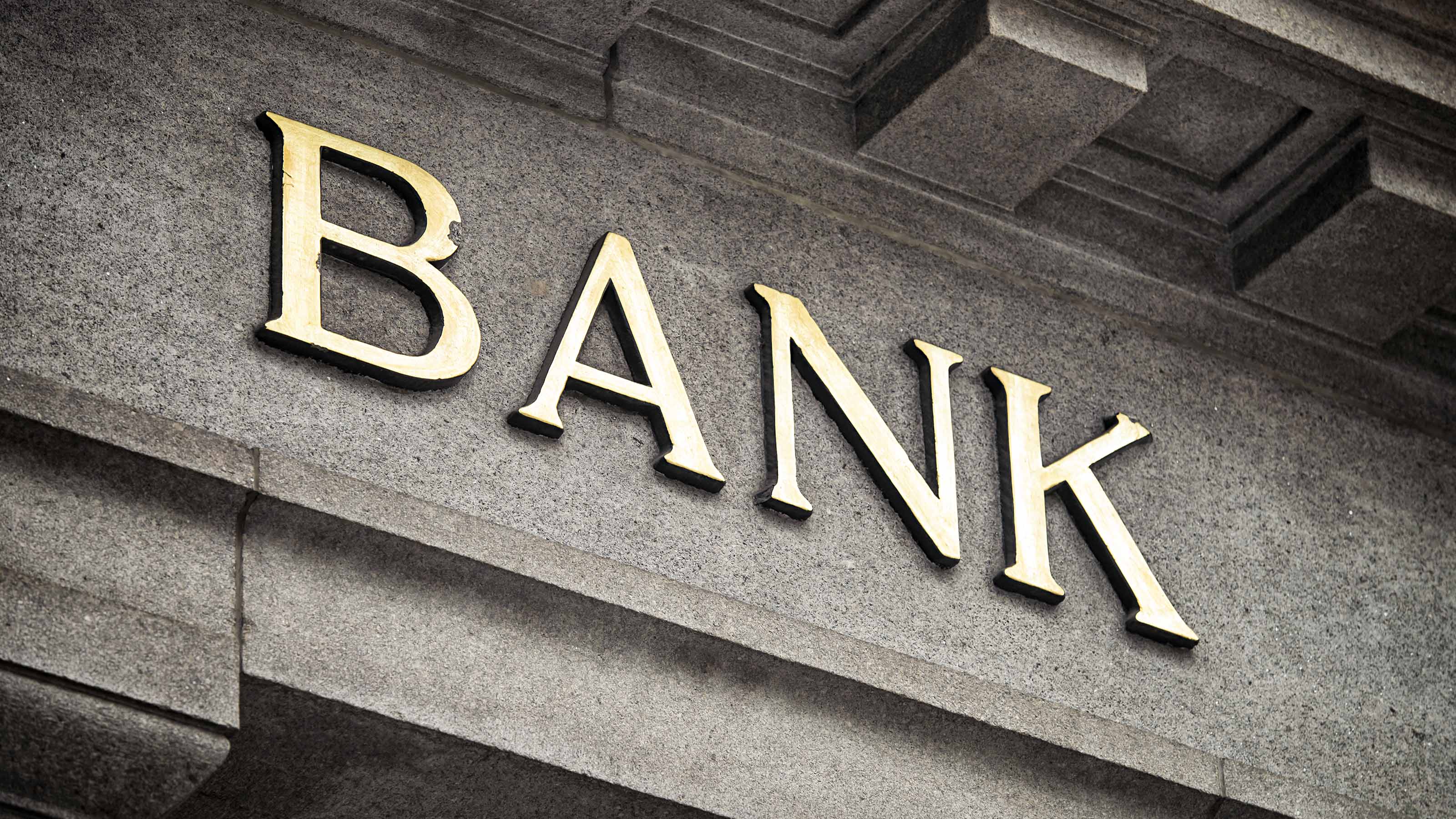Insider Buying: Bullish Signals for These 7 Stocks
If history is any guide, these stocks could be headed higher in the months ahead, based on recent insider buying activity.


Profit and prosper with the best of Kiplinger's advice on investing, taxes, retirement, personal finance and much more. Delivered daily. Enter your email in the box and click Sign Me Up.
You are now subscribed
Your newsletter sign-up was successful
Want to add more newsletters?

Delivered daily
Kiplinger Today
Profit and prosper with the best of Kiplinger's advice on investing, taxes, retirement, personal finance and much more delivered daily. Smart money moves start here.

Sent five days a week
Kiplinger A Step Ahead
Get practical help to make better financial decisions in your everyday life, from spending to savings on top deals.

Delivered daily
Kiplinger Closing Bell
Get today's biggest financial and investing headlines delivered to your inbox every day the U.S. stock market is open.

Sent twice a week
Kiplinger Adviser Intel
Financial pros across the country share best practices and fresh tactics to preserve and grow your wealth.

Delivered weekly
Kiplinger Tax Tips
Trim your federal and state tax bills with practical tax-planning and tax-cutting strategies.

Sent twice a week
Kiplinger Retirement Tips
Your twice-a-week guide to planning and enjoying a financially secure and richly rewarding retirement

Sent bimonthly.
Kiplinger Adviser Angle
Insights for advisers, wealth managers and other financial professionals.

Sent twice a week
Kiplinger Investing Weekly
Your twice-a-week roundup of promising stocks, funds, companies and industries you should consider, ones you should avoid, and why.

Sent weekly for six weeks
Kiplinger Invest for Retirement
Your step-by-step six-part series on how to invest for retirement, from devising a successful strategy to exactly which investments to choose.
As much as investors might like to key on insider selling for insights into where a company's share price could be headed, insider buying is a far more useful tell.
True, corporate insiders – the chairs, directors and executives who run the company – are privy to information that outsiders are not. When these insiders sell stock, it's only natural for outsiders to wonder if something is afoot.
But studies show that insider selling doesn't tell us all that much. The reason? Insiders sell stock for perhaps dozens of reasons, the vast majority of which are innocent.
An insider buys stock, however, for one reason only: He or she is bullish on the company -- and its shares -- prospects.
Which gave us an idea: Let's find stocks where recent insider buying activity has a high probability of predicting tactical outperformance for shares in the months ahead.
To that end, we used Refinitiv Stock Reports Plus. This data and analytics platform employs quantitative and historical metrics to track insider activity and score its utility as a predictor of share-price returns. The platform's Proven Insider scoring methodology is based on three factors: the insider's historical returns for the three months and six months following the purchase of stock, the consistency of those returns, and the number of times the insider has transacted.
"Quite simply, this gives tremendous insight into whether the insider makes prescient investment decisions or trades for reasons that one would not want to emulate (i.e., portfolio diversification or cash flow needs)," Stock Reports Plus says.
In the case of insider buying, Stock Reports Plus produces a "Proven Buy Score," which is a comparative proprietary performance ranking for each insider based on his or her prior trading performance when purchasing shares. Scores range from 1 (least predictive) to 100 (most predictive).
After screening the market for stocks with highly predictive recent insider buying activity – delivering a minimum of double-digit-percent returns over the following six months – we found seven names poised for outperformance.
So let's have a look at insider buying as it pertains to bullish signals for these seven stocks.
Share prices and other data are as of Sept. 23, courtesy of Refinitiv Stock Reports Plus and S&P Global Market Intelligence, unless otherwise noted. Stocks are ordered by average six-month return, from lowest to highest.

Golub Capital BDC
- Market value: $2.6 billion
- Dividend yield: 7.5%
- Average 6-month return: 12.4%
Golub Capital BDC (GBDC, $15.60) is all about delivering generous income to shareholders. Just have a look at its dividend yield, which over the past five years has been as high as 13.6% and never fallen below 6.3%.
For the uninitiated, GBDC is a closed-end fund that operates as a business development corporation. It makes debt and equity investments – primarily senior secured and one-stop loans – in midsized companies, which it defines as firms with operating income of $20 million to $100 million. As of June 30, the firm had stakes in 275 portfolio companies with a fair value totaling $4.4 billion.
Shares are up just 10% for the year-to-date, trailing the broader market by more than 8 percentage points, but a quantitative analysis of insider buying patterns suggests they're poised to accelerate over the next few months.
Chairman Lawrence Golub, with an estimated net worth of $1.2 billion, is one of the most predictive buyers at GBDC, according to Refinitiv Stock Reports Plus, scoring 95 out of 100 possible points in Proven Buy Score. So it's certainly bullish that the chairman purchased 153,403 shares in GBDC in mid-September. Historically, the stock has gained an average of 12.4% in the six months following Golub's 11 prior buy decisions.
Wall Street likes GBDC over the longer term, too, with analysts giving the stock a consensus recommendation of Buy, according to S&P Global Market Intelligence. Oppenheimer analyst Mitchel Penn initiated coverage of GBDC in September at Outperform (the equivalent of Buy), citing the company's conservative debt profile and strong liquidity, as well as clients' growing needs for capital amid an economic expansion.

First Merchants
- Market value: $2.2 billion
- Dividend yield: 3.0%
- Average 6-month return: 12.5%
Investors in First Merchants (FRME, $40.29) should be happy to know that Patrick Sherman, a member of the regional bank's board of directors since 2009, bought some more stock in September. True, it was a small purchase – 12 shares worth just $500 – but then that's always been his way.
More significant is Sherman's track record, which is both highly predictive and bullish for shares in the bank. Historically, FRME's average six-month return comes to 12.5% after the director buys shares. And since the data are based on a sample size of 115 prior purchases, Sherman's Proven Buy Score comes to 99 out of 100 possible points, per Stock Reports Plus.
Shares in First Merchant, the largest financial services holding company located in Central Indiana, are lagging the broader market by about 11 percentage points for the year-to-date, so they sure could use a pick up.
Not that investors lack encouraging fundamental reasons to but First Merchants stock, analysts say. The Street's consensus recommendation stands at Buy, with pretty high conviction. Of the six analysts covering FRME tracked by S&P Global Market Intelligence, two rate it at Strong Buy, three say Buy and one calls it a Hold.
"FRME has a strong organic loan growth outlook, good cost control, excellent credit and a strong capital base," writes Piper Sandler managing director R. Scott Siefers, who rates shares at Overweight (the equivalent of Buy). "All things considered, we thought the second quarter was another solid quarter from FRME, and the outlook is similarly powerful."
Raymond James analyst Daniel Tamayo (Outperform) concurs, adding that FRME "shares deserve to trade at a substantial premium to peers."

Walker & Dunlop
- Market value: $3.6 billion
- Dividend yield: 1.8%
- Average 6-month return: 16.3%
Investors probably shouldn't be surprised that Walker & Dunlop (WD, $113.23) stock has been uncomfortably volatile at times this year. After all, we're talking about a commercial real estate financing company coming out the other side of the pandemic.
Furthemore, WD is undergoing a shift in its business model, "towards more growth from brokered loans and property sales," notes Wedbush analyst Henry Coffey (Outperform), "and what should be more modest growth in mortgage placements" with government sponsored entities Fannie Mae and Freddie Mac.
Despite its ups and down, WD stock is still beating the broader market for the year-to-date. Even better, some recent insider buying suggests there's plenty more outperformance to come in the months ahead.
Lead Director Alan Bowers has been a member of the company's board since 2010. And when he buys stock in WD, good things tend to happen to its share price, according to Stock Reports Plus. Bowers in September bought 20 shares worth $2,240. True, that's not a whopping sum, but what it lacks in size, it more than makes up for in predictive value.
Historically, WD stock delivers an average six-month return of 16.3% after Bowers makes a purchase. Based on a lifetime total of 17 buy decisions, Bowers has a Proven Buy Score of 98 out of 100 possible points.
The Street is bullish on WD's prospects even beyond the next six months, giving it a consensus recommendation of Buy, with fairly high conviction. Interestingly, analysts' average target price of $134 gives WD implied upside of 18%. That jibes with the stock's historical returns following Bowers' insider buys.

Pool Corp.
- Market value: $18.7 billion
- Dividend yield: 0.7%
- Average 6-month return: 16.7%
Pool Corp. (POOL, $466.37), a supplier of swimming pool supplies, is sort of an under-the-radar recovery play in the travel, leisure and hospitality sector. Shares are up by a quarter so far this year, thanks to the general reopening of hotels, resorts and municipal pools.
Although analysts see more upside ahead based solely on the fundamentals, a quantitative analysis of insider buying patterns adds even more fuel to the bulls' fire.
David Whalen, a board member since 2015, has a Proven Buy Score of 98, which gives his insider buying activity a very high predictive value, according to Stock Reports Plus. In late August, the director bought a mere nine shares worth $4,323. Nonetheless, POOL stock has delivered an average six-month return of 16.7% following Whalen's past purchases – regardless of their size – which now total 16.
As for those fundamentals mentioned above, the Street, for the most part, says they're solid. Analysts' consensus recommendation on POOL stands at Buy, albeit with some notes of caution. Of the nine analysts issuing opinions on the stock, four call it a Strong Buy, one says Buy and four have it at Hold.
CFRA Research analyst Keith Snyder (Buy), for one, counts himself among the bulls.
"Even with the strained supply chains, second-quarter equipment sales jumped 35%, while chemicals, which have also been a challenge to supply this year, saw sales increase by 28%," Snyder writes in a note to clients. "Commercial pool products continue to rebound as leisure travel has resumed and resort, hotel and municipal pools reopened. We expect to see a continuation of this trend next quarter."

UMH Properties
- Market value: $1.1 billion
- Dividend yield: 3.2%
- Average 6-month return: 23.4%
With a year-to-date gain of nearly 61%, UMH Properties (UMH, $23.79) stock is clobbering the broader market by more than 40 percentage points in 2021. And some recent insider buying activity predicts even more lopsided returns are on the way.
UMH is a real estate investment trust (REIT) that develops manufactured home communities. Investors tend to like REITs for income. In exchange for certain tax breaks, they're required to pay out at least 90% of their taxable income as dividends to shareholders.
But as UMH's stock performance shows, REITs can also deliver price appreciation. And if Stock Reports Plus is right, a recent purchase of UMH shares by a key insider promises even more upside ahead.
William Mitchell, a director since 2019, has purchased shares in UMH a total of nine times during his tenure. Most recently, in mid-September, the director bought 43 shares worth $999. Small beer. But historically, UMH stock has gone on to deliver an average six-month return of 23.4% following Mitchell's stock purchases. Indeed, his track record is so solid he gets a Proven Buy Score of 97.
The Street is even more upbeat on this REIT, with a consensus recommendation of Strong Buy. Of the seven analysts covering UMH tracked by S&P Global Market Intelligence, six rate it at Strong Buy and one says Buy.
Wedbush analyst Henry Coffey (Outperform) cites the company's tried-and-true operating strategy among his reasons to be constructive on shares.
"UMH is one of the 10 largest operators of manufactured housing communities in the country, and while dwarfed by its larger public peers, for the last 50 years it has been able to consistently build value by buying smaller, underperforming communities and growing same-community revenue by improving site quality, increasing rents to market rates and improving collections and occupancy levels," Coffey writes.

HEICO
- Market value: $18.0 billion
- Dividend yield: 0.14%
- Average 6-month return: 25.3%
HEICO (HEI, $132.61) shares are flat so far in 2021, weighed down by what analysts call the "lumpy" recovery in its sector.
After all, the company provides replacement parts, services and accessories for the aerospace, defense and telecommunications industries. Aircraft manufacturers and airlines are recovering from the pandemic, which is doing the company no favors.
The Street has a consensus Buy recommendation on HEI, but with low conviction. Two analysts rate shares at Strong Buy, two say Buy, five call it a Hold and one says Sell. Their 12-month target price of $135.60 gives HEI very little implied upside.
However, the outlook for tactical investors is plenty bullish, at least based on a quantitative analysis of insider buying patterns.
"Heico currently has an Insider Trading Rating of 9, which is significantly more bullish than the Aerospace & Defense industry average of 5.13," notes Stock Reports Plus.
HEI's high insider trading rating is due in part to Co-President Eric Mendelson, a director since 1992, who bought 834 shares in mid-September worth $104,154. Historically, based on nine prior buy decisions, shares in Heico have gained an average of 25.3% in the six months following a Mendelson purchase.
Bullish analysts, meanwhile, like the stock's prospects well beyond six months. Baird analyst Peter Arment's target price of $160 gives HEI implied upside of 21% in the next 12 months or so.
"HEI management has a track record of solid execution and has created significant shareholder value," writes Arment (Outperform). "HEI is the world’s largest PMA manufacturer, and is positioned to benefit from aftermarket tailwinds once air traffic recovers."

Texas Pacific Land
- Market value: $10.1 billion
- Dividend yield: 0.9%
- Average 6-month return: 32.0%
Texas Pacific Land (TPL, $1,307.04) owns land – lots of land – and water resources in Texas. Indeed, it's one of the largest landowners in the Lone Star State, billing itself as a pure-play in the oil-and-gas rich Permian Basin.
In a twist, TPL generates revenue from royalties and easements – not from producing oil and gas. The company also operates a water sourcing and disposal business.
Shares are up 80% for the year-to-date, thanks partly to a general recovery in the energy sector following last year's pandemic-caused plunge. Recent insider buying activity predicts even more outperformance ahead.
Tactical investors will no doubt be happy to hear that a highly predictive insider recently purchased shares in TPL. Murray Stahl, a TPL board member, as well as chairman and CEO of Horizon Kinetics LLC, has a Proven Buy Score of 97 out of 100 possible points. And by Stock Reports Plus' calculations, shares in TPL deliver an average six-month return of 32% following his stock purchases.
Bulls say TPL's fundamentals are in a good shape, as well. BWS Financial analyst Hamed Khorsand (Buy) notes that the company is benefiting from rising crude oil prices.
"An upward move in energy prices has helped restart activity in the Permian Basin," the analyst writes. "Rig count and overall activity remain depressed compared to pre-COVID-19 levels even though crude oil prices are now higher than they were in all of 2019. The slow progression in active rigs could result in accelerated activity in 2022 as budgets are adjusted for a higher oil price."
Only two analysts have issued opinions on TPL stock, per S&P Global Market Intelligence. The aforementioned Khorsand says Buy, the other analyst calls it a Hold. That works out to a consensus recommendation of Buy, albeit with low conviction.
Profit and prosper with the best of Kiplinger's advice on investing, taxes, retirement, personal finance and much more. Delivered daily. Enter your email in the box and click Sign Me Up.

Dan Burrows is Kiplinger's senior investing writer, having joined the publication full time in 2016.
A long-time financial journalist, Dan is a veteran of MarketWatch, CBS MoneyWatch, SmartMoney, InvestorPlace, DailyFinance and other tier 1 national publications. He has written for The Wall Street Journal, Bloomberg and Consumer Reports and his stories have appeared in the New York Daily News, the San Jose Mercury News and Investor's Business Daily, among many other outlets. As a senior writer at AOL's DailyFinance, Dan reported market news from the floor of the New York Stock Exchange.
Once upon a time – before his days as a financial reporter and assistant financial editor at legendary fashion trade paper Women's Wear Daily – Dan worked for Spy magazine, scribbled away at Time Inc. and contributed to Maxim magazine back when lad mags were a thing. He's also written for Esquire magazine's Dubious Achievements Awards.
In his current role at Kiplinger, Dan writes about markets and macroeconomics.
Dan holds a bachelor's degree from Oberlin College and a master's degree from Columbia University.
Disclosure: Dan does not trade individual stocks or securities. He is eternally long the U.S equity market, primarily through tax-advantaged accounts.
-
 Stocks Sink With Alphabet, Bitcoin: Stock Market Today
Stocks Sink With Alphabet, Bitcoin: Stock Market TodayA dismal round of jobs data did little to lift sentiment on Thursday.
-
 Betting on Super Bowl 2026? New IRS Tax Changes Could Cost You
Betting on Super Bowl 2026? New IRS Tax Changes Could Cost YouTaxable Income When Super Bowl LX hype fades, some fans may be surprised to learn that sports betting tax rules have shifted.
-
 How Much It Costs to Host a Super Bowl Party in 2026
How Much It Costs to Host a Super Bowl Party in 2026Hosting a Super Bowl party in 2026 could cost you. Here's a breakdown of food, drink and entertainment costs — plus ways to save.
-
 The 24 Cheapest Places To Retire in the US
The 24 Cheapest Places To Retire in the USWhen you're trying to balance a fixed income with an enjoyable retirement, the cost of living is a crucial factor to consider. Is your city the best?
-
 5 Stocks to Sell or Avoid Now
5 Stocks to Sell or Avoid Nowstocks to sell In a difficult market like this, weak positions can get even weaker. Wall Street analysts believe these five stocks should be near the front of your sell list.
-
 Best Stocks for Rising Interest Rates
Best Stocks for Rising Interest Ratesstocks The Federal Reserve has been aggressive in its rate hiking, and there's a chance it's not done yet. Here are eight of the best stocks for rising interest rates.
-
 The Five Safest Vanguard Funds to Own in a Volatile Market
The Five Safest Vanguard Funds to Own in a Volatile Marketrecession The safest Vanguard funds can help prepare investors for market tumult but without high fees.
-
 The 5 Best Inflation-Proof Stocks
The 5 Best Inflation-Proof Stocksstocks Higher prices have been a major headache for investors, but these best inflation-proof stocks could help ease the impact.
-
 5 of the Best Preferred Stock ETFs for High and Stable Dividends
5 of the Best Preferred Stock ETFs for High and Stable DividendsETFs The best preferred stock ETFs allow you to reduce your risk by investing in baskets of preferred stocks.
-
 What Happens When the Retirement Honeymoon Phase Is Over?
What Happens When the Retirement Honeymoon Phase Is Over?In the early days, all is fun and exciting, but after a while, it may seem to some like they’ve lost as much as they’ve gained. What then?
-
 5 Top-Rated Housing Stocks With Long-Term Growth Potential
5 Top-Rated Housing Stocks With Long-Term Growth Potentialstocks Housing stocks have struggled as a red-hot market cools, but these Buy-rated picks could be worth a closer look.
